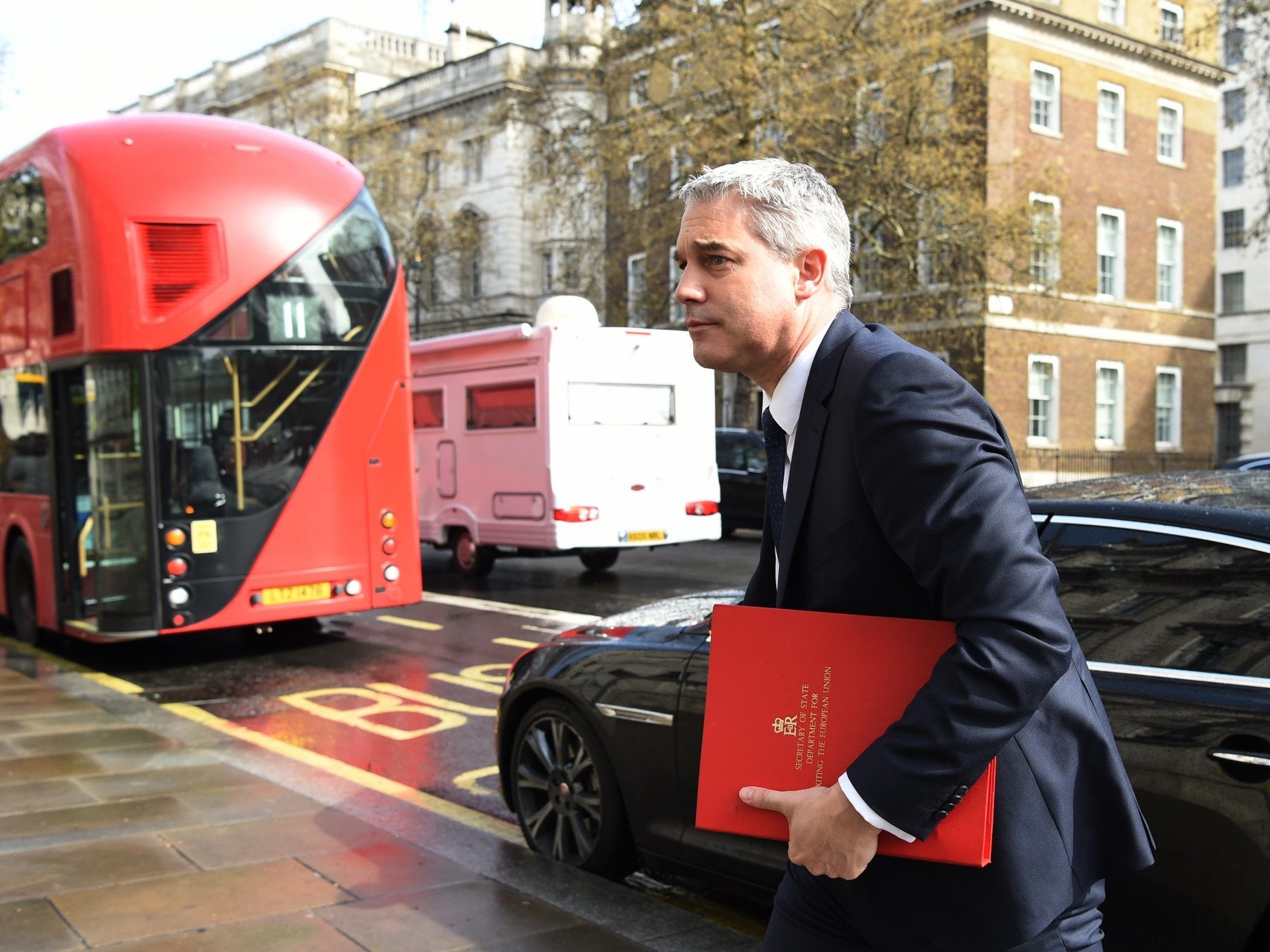Priti Patel: Tory minister hints Boris Johnson government backing away from no-deal Brexit by October 31
The home secretary says she told the prime minister she wanted a deal with EU when she agreed to join his cabinet
Your support helps us to tell the story
From reproductive rights to climate change to Big Tech, The Independent is on the ground when the story is developing. Whether it's investigating the financials of Elon Musk's pro-Trump PAC or producing our latest documentary, 'The A Word', which shines a light on the American women fighting for reproductive rights, we know how important it is to parse out the facts from the messaging.
At such a critical moment in US history, we need reporters on the ground. Your donation allows us to keep sending journalists to speak to both sides of the story.
The Independent is trusted by Americans across the entire political spectrum. And unlike many other quality news outlets, we choose not to lock Americans out of our reporting and analysis with paywalls. We believe quality journalism should be available to everyone, paid for by those who can afford it.
Your support makes all the difference.Boris Johnson’s government is “fully committed” to securing a withdrawal agreement with Brussels by 31 October, the home secretary Priti Patel has said.
Ms Patel used a high-profile TV interview to state no fewer than nine times that the government was aiming for a deal, while not mentioning once the possibility of leaving without an agreement.
And she appeared to indicate that she made it a condition of joining Mr Johnson’s cabinet in July that the government should make a serious attempt to get a deal.
Meanwhile, Brexit secretary Stephen Barclay suggested that if a deal is secured, the government might take advantage of a provision negotiated by Theresa May to extend a proposed transition period by two years from 2020 to the end of 2022 in order to provide time to complete new arrangements for the Irish border.
The home secretary’s comments are certain to prompt speculation that the government is edging away from the oft-repeated threat of a Halloween no-deal after MPs passed legislation that would make it unlawful in the absence of parliamentary approval. They echo a shift in tone from other ministers towards stressing the importance of securing a deal.
Apparently designed to quash widespread suspicions that the prime minister privately favours no-deal, the remarks may be part of an effort to put pressure on Mr Johnson to make good on his public declarations that he wants an agreement with Brussels to allow an orderly Brexit.
Ms Patel told BBC1’s Andrew Marr Show: “The prime minister is fully committed to getting a deal…
“When he brought me into government, along with other colleagues, we were clear to him, as he was to us, that our focus is on leaving on 31 October with a deal.
“Our job right now is to absolutely give confidence to securing that deal, and backing the prime minister in everything he is doing to secure that deal through the negotiations that are currently under way.”
Mr Johnson is due to meet outgoing European Commission president Jean-Claude Juncker in Luxembourg on Monday in the latest of a series of bilateral talks with key EU figures, including Angela Merkel, Emmanuel Macron, Donald Tusk and Leo Varadkar.
The UK’s chief negotiator David Frost has undertaken a regular series of informal meetings, but EU officials have complained that the UK has yet to put any firm proposals on the table ahead of a crunch summit on 17 October when Mr Johnson hopes to seal an agreement.
Ms Patel said: “My instinct is that we have to leave and we have to leave with a deal on 31 October.
“We are moving forward now as a government collectively focused on leaving, but leaving with a deal, and that is the work that is taking place right now.”
Mr Barclay suggested that if agreement could be reached by 31 October on new arrangements for the Irish border, the government might have as much as three years actually to put systems into place.

As well as making use of the transition period included in Ms May's deal, he suggested that ministers could trigger the optional extra two years negotiated by the former PM.
And he suggested that Northern Ireland devolved institutions could be given a key role in breaking the deadlock, even if power-sharing is not restored until after Halloween.
"Within the Belfast/Good Friday Agreement is this key principle of the consent of both sides of the community," Mr Barclay told BBC Radio 5 Live's Pienaar's Politics.
"So as we look at the detail then clearly the role of the Executive, the importance of that returning, the fact that that is a requirement by the end of the implementation period - not by 31 October - is the sort of detail clearly that we can get into. But the UK as a whole must remain sovereign and it is important that decisions are done on that basis."
Asked if alternative arrangements for the border could be implemented in time for the end-of-October deadline, he replied: "Operationally these issues do not apply until the end of the implementation period, which is December 2020 - or one or two years later by mutual agreement."

Join our commenting forum
Join thought-provoking conversations, follow other Independent readers and see their replies
Comments